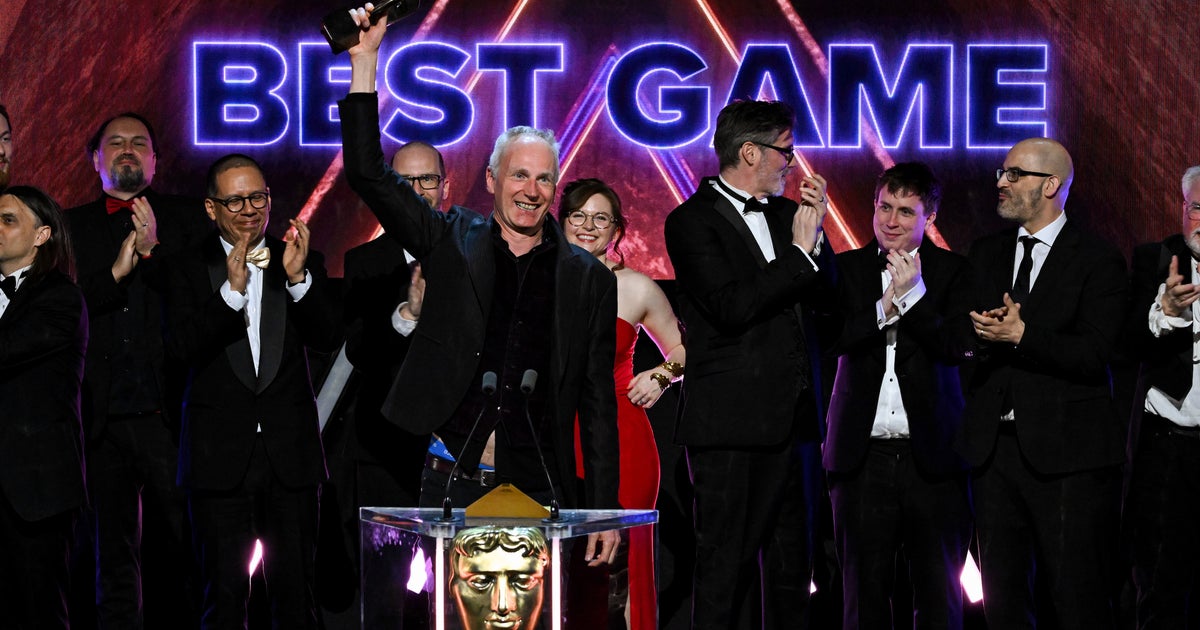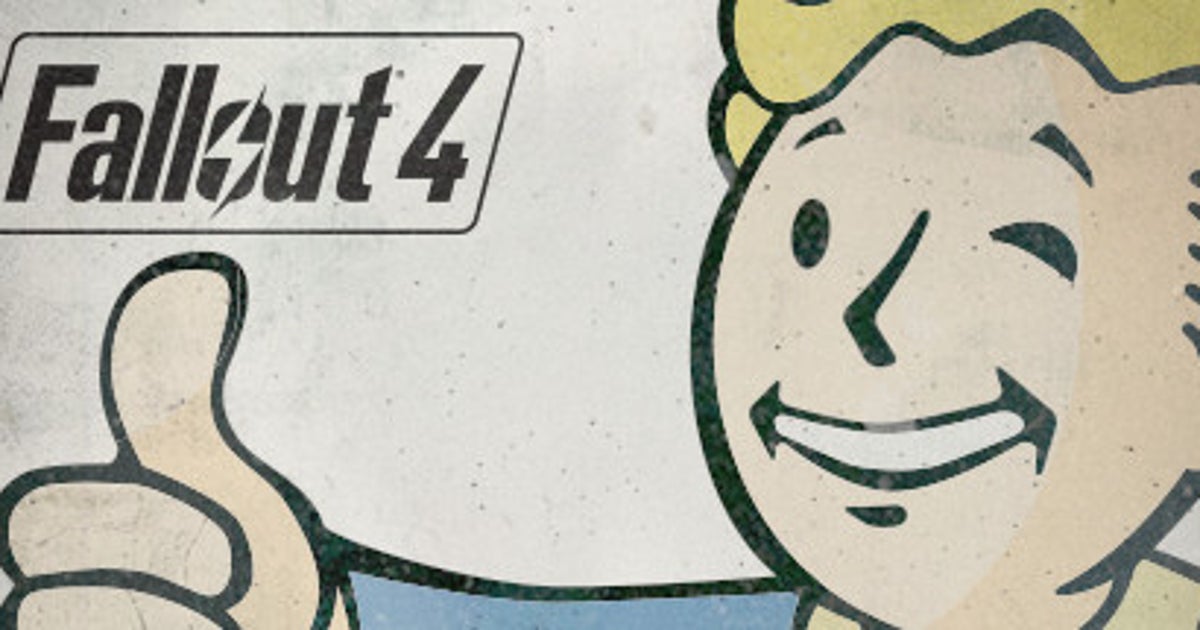Last week, Larian’s Baldur’s Gate 3 won five BAFTAs, including Best Game and Player’s Choice.
That’s on top of GOTY accolades at the Golden Joystick Awards, The Game Awards, the DICE Awards, and the Game Developers Choice Awards. As GamesRadar+ pointed out, that makes it the first game to accomplish this grand slam since The Game Awards’ inception in 2014. That’s not even taking into account other wins like at the New York Game Awards, the Steam Awards, and of course being among GamesIndustry.biz’s very own Games of the Year 2023 (and many other publications’).
By now, there isn’t a lot about Baldur’s Gate 3’s success that hasn’t been said already. We’ll try regardless.
We first talked to Larian about Baldur’s Gate 3 in 2020, during a press trip showcasing the game for the first time. We met again in 2021, a year into BG3’s extremely successful Early Access, and we noted how much had changed already.
Both times, the same core topics and ideas emerged from our conversations with CEO Swen Vincke though; Larian’s healthy approach to growth, the importance of community in its development process, and how ultimately it was all about making decisions that would benefit the game.
A world has happened since these interviews. But as we sit with Vincke for the third time, it’s clear that the more things change, the more they stay the same. The studio had a vision for its development journey, and it never strayed from it despite challenges. It just simply… went ahead and did it, without compromising its values and approach in the process.
“We did something new,” Vincke says when chatting about BG3’s success. “We put agency in cinematics at a level that hadn’t been done before, and we didn’t go out of the way trying to take shortcuts, although we did use a lot of tricks. But you can sense that the agency was real, I think. So that’s a massive reason. We didn’t deviate from that, even if we were facing development problems.”
The resurgence of Dungeons & Dragons, and the weight of the Baldur’s Gate name, both played their part in this success story, but there was a real ‘if you build it, they will come’ approach to making Baldur’s Gate 3, coupled with not only a strong bond with the Larian community but the right strategy to maintain it.
“I’ll give you a very Catholic answer – treat your players as you would like to be treated, that’s it,” Vincke says when asked about how to maintain trust with a game’s community.
He continues: “We had the best marketing campaign in the world, which was our players talking about it. We had over a million players from the first week that were talking to their friends about the game. There’s this old rule I once picked up from Paradox that [if] you take your pre-orders and multiply it by ten, you know what your essential audience is going to be. And that basically guided me in how far we could go in the development of the game.
“What I said at the start was: if we do what Divinity Original Sin 2 does, then we’re fine. We can work from that basis, and we should get more because we’ll have the Dungeons & Dragons effect and the Baldur’s Gate effect. That materialised in those numbers, right? I didn’t want to believe it. I was really sceptical but Michael [Douse], our director of publishing, was more optimistic. He said, ‘No, it’s going to be much more’ and I kept on saying, ‘No, no, no, no’,” he laughs. “But it’s my job to be able to make sure that we don’t run out of fuel. So that worked really well, actually.”
Larian had the difficult task of marketing and launching Baldur’s Gate 3 in the middle of an extremely packed 2023 schedule. The studio split the release of the PC and console versions to avoid clashing with Starfield. But in the end, it’s Baldur’s Gate 3 that had the upper hand against Bethesda’s behemoth.
“I have a lot of respect for Bethesda… If you’re at sea and a bigger boat passes by, the rule is that you go out of the way for the bigger boat – they were the bigger boat. We went out of the way for [Bethesda], but we still wanted the world to pay attention to us.”
Vincke acknowledges that Starfield and Baldur’s Gate 3 are evidently very different games, but the Larian team wanted to make sure the right aspects of its game were showcased to set it apart from Bethesda’s title in players’ minds.
“We had a lot of narrative-heavy permutations, so we wanted to showcase that the game was very big on identity, and how that identity [is] reflected into the game. We were also a much more cinematic game. Immersion gameplay was similar in what our ambitions were. I think those first three were definitely highlights of what we wanted to focus on.”
The game being very big on identity is an undeniable factor contributing to its success, the scale of which was abundantly clear when witnessing Vincke’s talk at the Game Developers Conference last month. One hour and a half before its start, fans were already populating the room, prompting sound engineers to wonder if they had the time wrong, worrying that the speaker wasn’t here yet to do the sound check.
A rare sight for a B2B show, some people attended the talk in cosplay, and GDC volunteers were enthusiastically chatting about having just enough time to listen to Vincke before having to go back to work.
When Larian’s CEO arrived, people immediately started approaching him to have a chat and take pictures. Up until a few minutes before the start of the talk, Vincke said yes to every single one of them. After the talk, he offered more of his time, gathering a small crowd and leading them outside to make sure everyone would get their picture.
Even the Nintendo talk I attended the previous day didn’t quite match that atmosphere.
GamesIndustry.biz has had several conversations over the past few months about what some developers called ‘the Baldur’s Gate 3 effect’, which impacted not only AAA titles like Starfield but more importantly indies, who struggled to have space to breathe in the release schedule as the BG3 phenomenon took off.
“It sucks,” Vincke says as we ask about how he and Larian lived that situation internally. “There’s a game called Stray Gods, and they were affected. They had to move their release date as a result of us. It was this cascading effect, right? It would really have been much better if we would all know each other’s release dates up front because there’s always that secrecy around them.
“I think there’s room for a lot of games, but you don’t want them to come out at the same moment in time. You need to try to get a little bit of wiggle room. And it’s hard, because it’s oversaturated in games. So, yeah, I’m well aware that that is the case and I apologise, actually. It happened to us, so I know exactly how that feels.”
It’s clear from talking to Vincke, or witnessing the Larian team at every award show they attend or during any interview they give, that the studio dreams of a different games industry. And the studio also de facto became a role model for what a different games industry can look like.
“I have expressed a strong desire to the teams not to grow,” Vincke smiles. “The teams have told me in extreme detail why we needed to grow, so there’s that fight going on right now. I’m actually the one that is trying to hold it back. And they have legitimate reasons why they want to grow it, because they have ambitions they need to achieve, so we’re trying to keep it sane.”
Vincke made his opinion about unsustainable growth and the industry’s gold rush very clear in his GDC Game of the Year acceptance speech, calling out studios’ greed, wishing they would “slow down” and not just focus on financial results.
For similar reasons, he says Larian is never going to start doing “40 or 50 games, or whatever, at the same time, because that would kill us.”
“We’re a company that’s made to focus on a couple of things, and we actually are,” he continues. “I think we’re intellectually unable to go further than that. We don’t know how we would do it. It would turn us into something different than what we are right now, and we don’t want to do that. We have ambitions to make really good RPGs, and that’s sufficient.
“So we’re happy that we have the resources we have, we project them into the future, we make sure that we have one in reserve – that if one fails, we can still make a second one. And that’s essentially the strategy. And then if we get more financial success over one, that’s great. We can make better games. If it’s less fine, then we’ll adapt and we’ll make a little bit less of a game. But it’s really about making games.”
During his GDC talk, Vincke mentioned that BG3 had a AAA budget so, thinking about the state of the games industry, we highlight how the costs of game development keep rising and ask him how we overcome that as an industry and make things sustainable.
“The Steam market has been growing, so that means there’s a basis there. I think that’s where it starts, right? We had stupidities like NFTs [that] caused a lot of damage. They caused a lot of inflation and they disrupted development by stealing – I [saw] an NFT company that came by a school and took all the professors away by paying them way more. That’s the worst thing you can do in an industry. So they did a lot of damage. Those are the people I’m speaking out against, I really don’t buy into that.
“Getting rid of that kind of thing would be a good way of increasing sustainability, then [fixing] what the fundamental core problem in our business is, that [it] is driven too much by quarterly profit. That is the fundamental problem, because we are a very messy business and we need long-term thinking there. You have to be lucky [to be] in companies that do long-term thinking and give the space to the developers to do their thing. And then over time, they’ll probably get much bigger budgets or generate much more money than the short-term thinking.
“The problem is that short-term thinking especially, it’s almost like drug dealing – you can really earn very rapidly, but you’re doing damage. So that really shouldn’t be done anymore, to be honest.”
Eight months after launch, Baldur’s Gate 3 still benefits from regular quality-of-life updates, and continues to gather high numbers of players. SteamDB’s numbers (which should be taken with a pinch of salt) show that the title peaked at 78,485 players in the last 24 hours. Dragon’s Dogma 2, which released less than a month ago and has the potential to attract similar profiles of players, peaked at 25,793 only within the same period.
“We updated it, we added new content – I think word of mouth is also doing its job,” Vincke says of BG3’s sustained success. “There’s a lot of people telling their friends that they should try BG3, so we’re definitely seeing a lot of new players getting on board with it. I mean, our marketing strategy was word of mouth. We said, if you get critical acclaim in word-of-mouth, the rest will follow.”
But news of the future of the game came like an ice cold wind in the room during Vincke’s GDC talk, prompting several gasps of horror in the process: Larian won’t be working on DLC or a sequel.
“I want to make games with a beginning, middle, and end,” Vincke tells us. “That’s it really. I mean, there’s nothing wrong with the games-as-a-service model, I think there’s some great examples out there. But it’s a different kind of development.
“The games we’re making, I like that they have an end because then I can move on to the next one. We’re not making another BG, or DLC, because we’re done. We want to move on to something new.”
There’s not much Vincke could share about what’s next, only saying: “It contains a number of things that we haven’t done before, that I’m really curious to see if they’re going to work out.”
Larian has several offices across the world relaying with each other when working on a project, allowing for a 24-hour approach to development, and continuous QA. Vincke intends to maintain that structure for what’s ahead.
“We’ll have that because we have our studios in place so we’ll make the most of the benefits that that brings. It has its downsides also, so we need to try and improve those. But we have one branch against QA all the time, that’s a great thing to be able to do.
“Certainly scale has brought new problems, so dealing with that, figuring out how to do that, is a big ambition. So we are taking our time now. We slowed down heavily just to be able to figure things out.”
When Baldur’s Gate 3 first came out, the whole discourse was about whether it was setting new standards for RPGs. Needless to say that no one should be held to that ridiculously high standard, but we ask Vincke whether it raised the standard for him personally, and for the studio.
“Yes, but we want to be there, right? We want to improve from where we were before. It would be a shitshow if we actually regressed,” he laughs. “At the same time, we did remove the pressure from the valve because we said, ‘Okay, we’re just gonna do this on our own thing, create what we think is a good game, we’ll just make that and see how it resonates’.”
If you build it, they will come.


